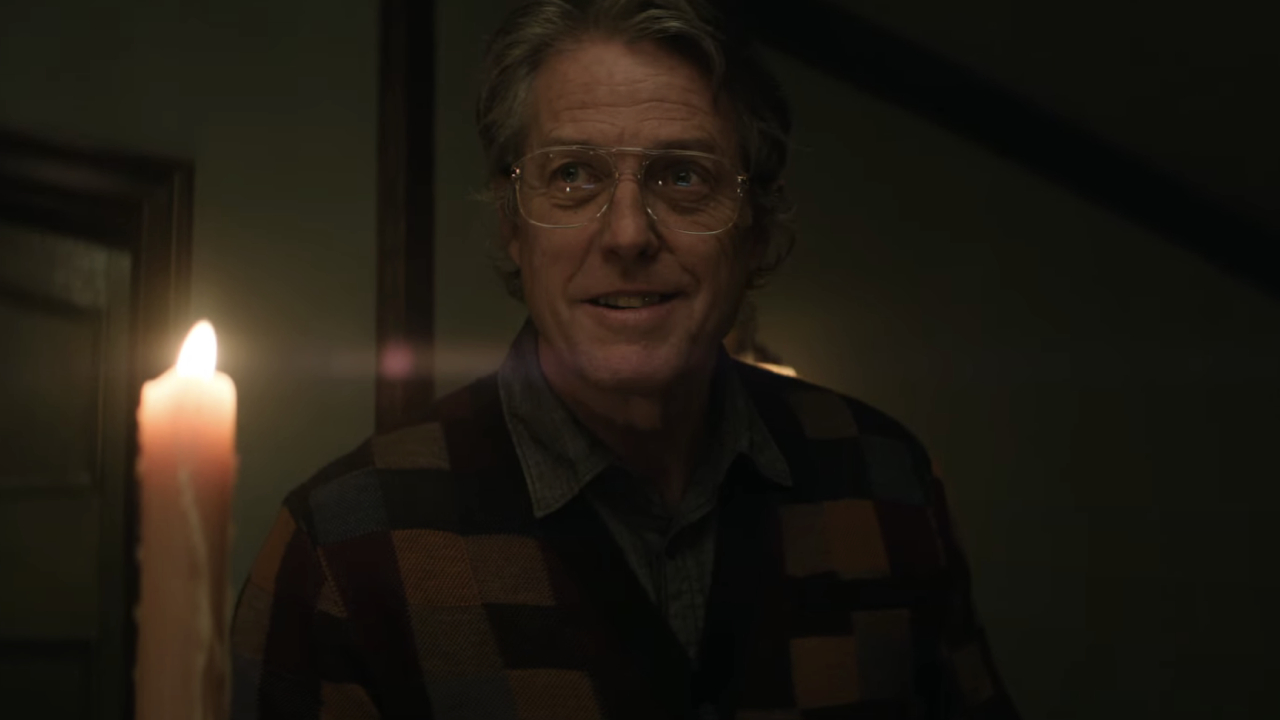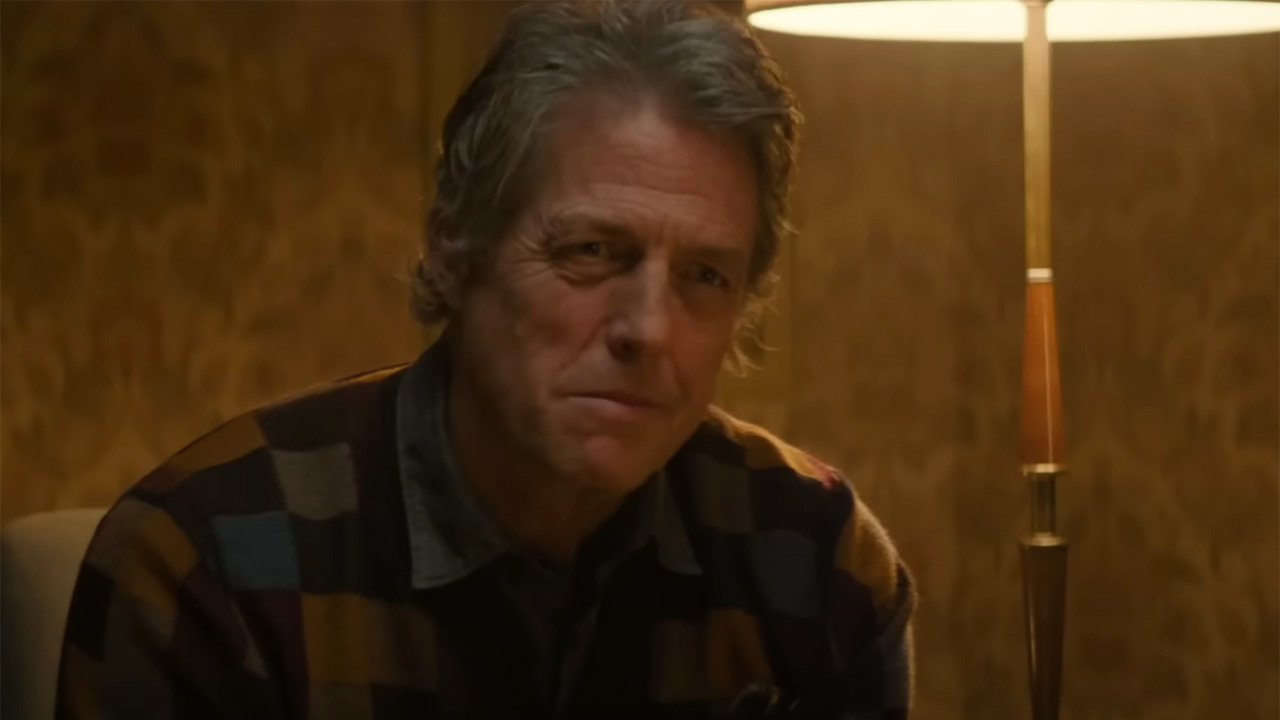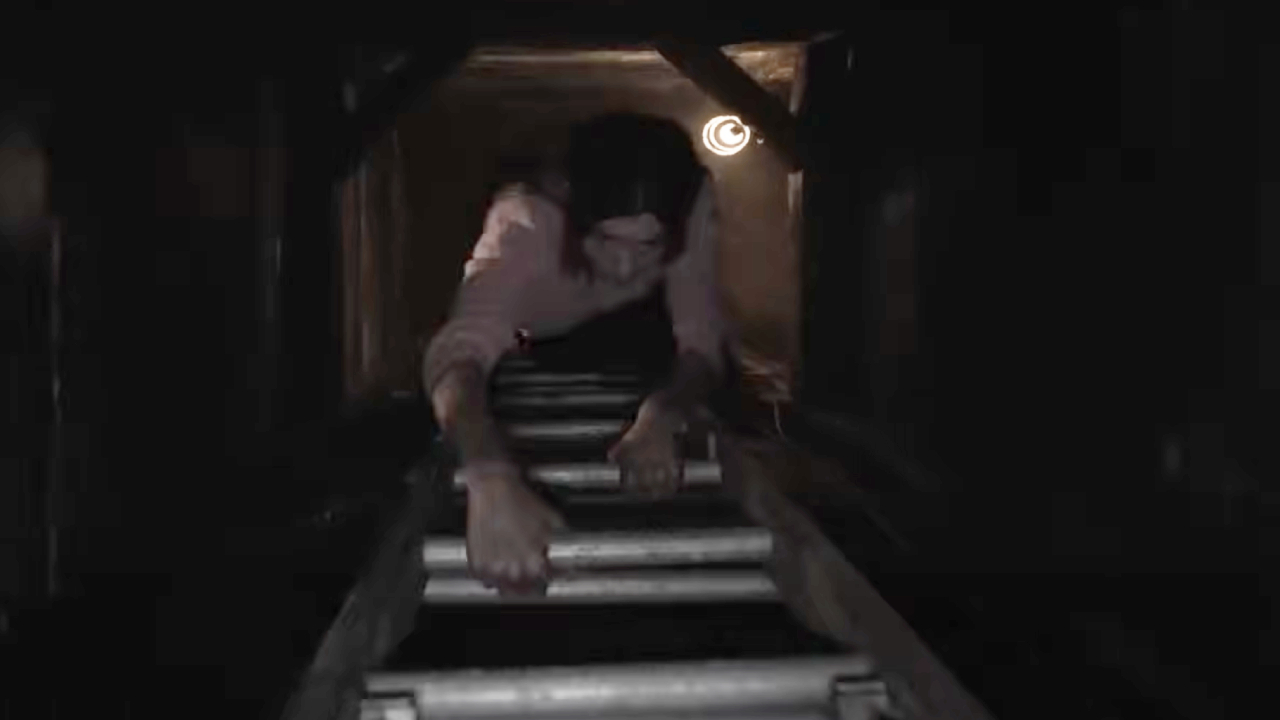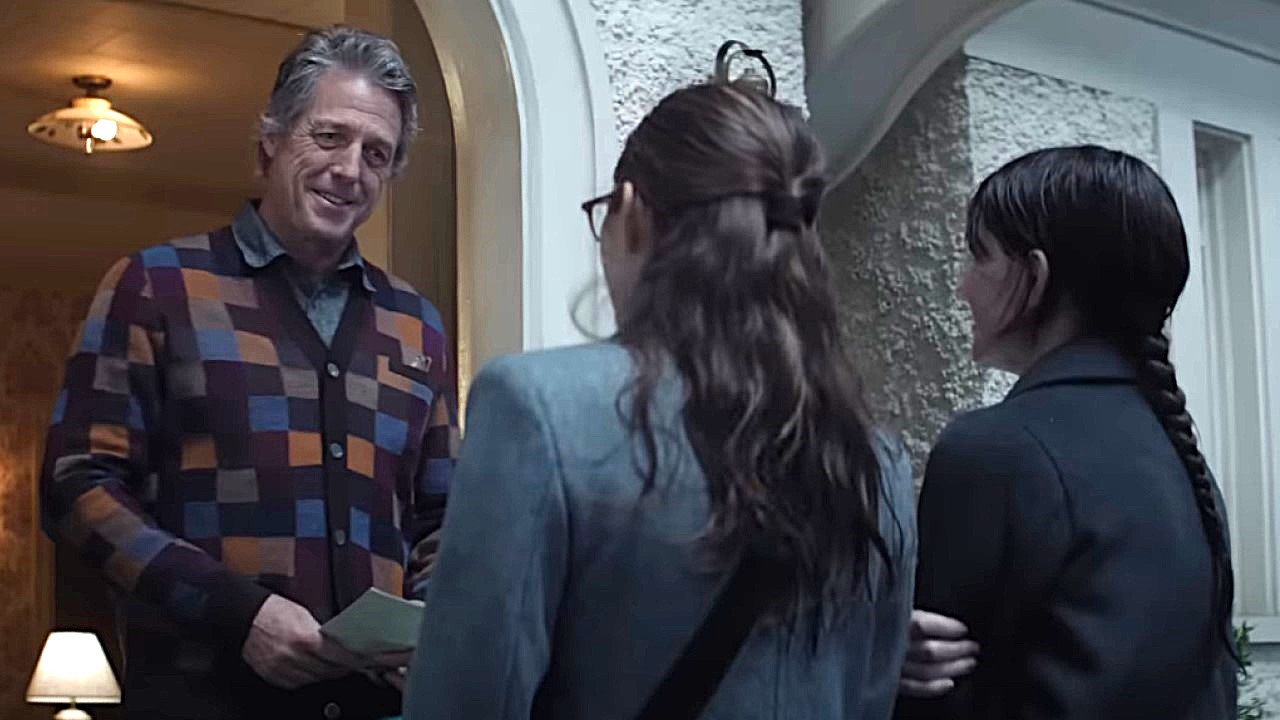SPOILER WARNING: The following article gives away everything that happens in the Heretic ending, so we pray you have already seen the film before you continue reading.
Belief is a powerful thing. The question is, what is it that influences us to believe in the things that we do believe in? A new horror movie called Heretic presents a theory that is undeniably thought-provoking and will likely prove maddening to some audiences.
The new 2024 movie from writers and directors Scott Beck and Bryan Woods, and also the latest A24 film, stars Hugh Grant as Mr. Reed, who embroils visiting Mormon missionaries Sister Barnes (Sophie Thatcher) and Sister Paxton (Chloe East) into a deadly game of wits as part of an experiment to unlock the mystery of religious faith. What is the conclusion to his experiment and what else can we interpret from what CinemaBlend’s Heretic review calls one of the best horror movies of 2024? Let us bow our heads and find out by taking a deeper look at the Heretic ending.

What Happens At The End Of Heretic
The final act of Heretic sets in motion when Sister Barnes, after challenging the outcome of Mr. Reed’s resurrection experiment as just a near-death experience, has her throat slit open by the man. He then digs into her arm to find a metal object that he believes indicates she is an artificial human, echoing the “Prophet’s” claim that life is merely a simulation.
However, Paxton explains that the object is a contraceptive and further debunks the Prophet’s resurrection as a magic trick, achieved by replacing the poisoned woman with another. She then says she believes the changeling’s claim that “none of this was real” was a way of warning the women about Reed’s trick, which prompted the man to improvise the simulation detail to cover his tracks.
After finding the trap door that Reed achieved the illusion with, Paxton discovers several other women Reed has kept captive in a basement chamber. There, she correctly infers that this entire occasion has been Reed’s way of explaining to the women what he believes is “the one true religion”: control.
Paxton takes the chance to stab Reed with a letter opener but, in attempting to run away, he catches up to her and stabs her in the stomach. Before he can he make one more fatal move, Barnes seemingly resurrects to kill Reed before falling to her ultimate death. After finally making it outside the house, Paxton sees a butterfly land on her fingertip but, in the next and final shot, it is gone.

How Mr. Reed Comes To His "One True Religion" Conclusion
One of the reasons why critics are praising Heretic as one of the best A24 horror movies yet is Hugh Grant’s deceptively charming performance as Mr. Reed. His ability to lead the audience in one direction before subverting expectations when his character’s true intentions are revealed serves as a perfect representation of the villain’s belief in control as the “one true religion” and his means of demonstrating it.
Until Barnes and Paxton become privy to his intentions, nearly every move they make is the outcome of Reed’s own manipulative acts – something he even bluntly addresses to them. He continuously reminds them that they are free to go while shoving a new obstacle in their way and presenting subtle details that, eventually, lead them to choose the “Belief” door, which is exactly the door he hoped they would choose, despite his damning lecture about organized religion suggesting the contrary.
Reed’s examination – or, more accurately, indictment – of various faiths and their relation to one another is, admittedly, fascinating, particularly in his analogous approach. He compares the melodic similarities between The Hollies’ “The Air That I Breathe,” 1992’s “Creep” by Radiohead, and Lana Del Rey’s “Get Free” from 2017 to the idea that Christianity could be largely seen as a mere iteration of Judaism, which could be seen as an iteration of Islam, and so on.
As far as Mr. Reed is concerned, religion is no more than a man-made organization built on the influence of pre-existing ideas that appear as truth to people by the power of suggestion. The question is, does the movie believe that?

What The Butterfly Represents
The true message of Heretic can actually be summed up by its final moment, in which Sister Paxton sees the butterfly appear on her fingertip, which suggests it could be Barnes, who says she would choose to come back as a butterfly after death. However, the next shot implies that the butterfly is a figment of Paxton’s imagination, but who is to say what is the true reality here?
The point of the ambiguous Heretic ending is that in the grand scheme of things, there is no right or wrong answer. Some audiences could come away from the film believing the butterfly is real, or that the butterfly is all in Paxton’s head, or even that she is still in Reed’s basement lying dead and her escape is also a fantasy. It all comes down to the individual’s personal interpretation and such is also the case for religious faith.
This is reflected in Scott Beck’s following quote from an interview with CinemaBlend’s Eric Eisenberg:
Well, the ending, the mark was always to present a larger question that's a take home for the audience. Our ambition with this film is that it's a conversation starter. Everybody has their own relationship to belief or disbelief, atheism, to being staunchly religious. And it felt like this movie, if anything, can hold a mirror up to the questions of like, 'Why do we believe what we believe? How do we come to our own convictions?' The end of the film presents, I think, that question in a very ambiguous way, but maybe very overt. There can be three, four, five different interpretations of how you walk away from that movie. And the hope is that your interpretation of that reflects upon your own contradictions or your own reasonings to why you believe what you believe.
Based on the co-writer and co-director’s testimony above, Mr. Reed’s seemingly anti-religious tirade is not actually meant to be taken as anti-religious, nor does the film intend to argue in that direction. Heretic is merely an examination of the complexities of faith in all its forms and, much like the butterfly, the choice of whether or not to believe in it is left up to you.
Scott Beck and Bryan Woods have had quite a career so far – breaking into the mainstream as the co-writers of 2018’s A Quiet Place, directing Adam Driver in a prehistoric sci-fi adventure with 2023’s 65, and now crafting one of the best A24 movies as of late with Heretic. For the most part, and especially with this latest intriguing release, I would say they have proven themselves as a horror filmmaking duo worth putting your faith into.

